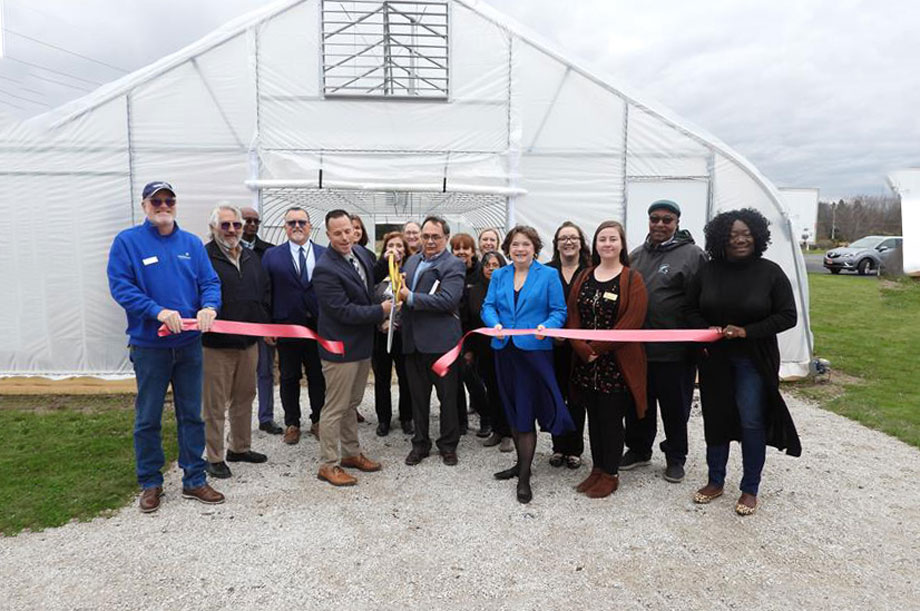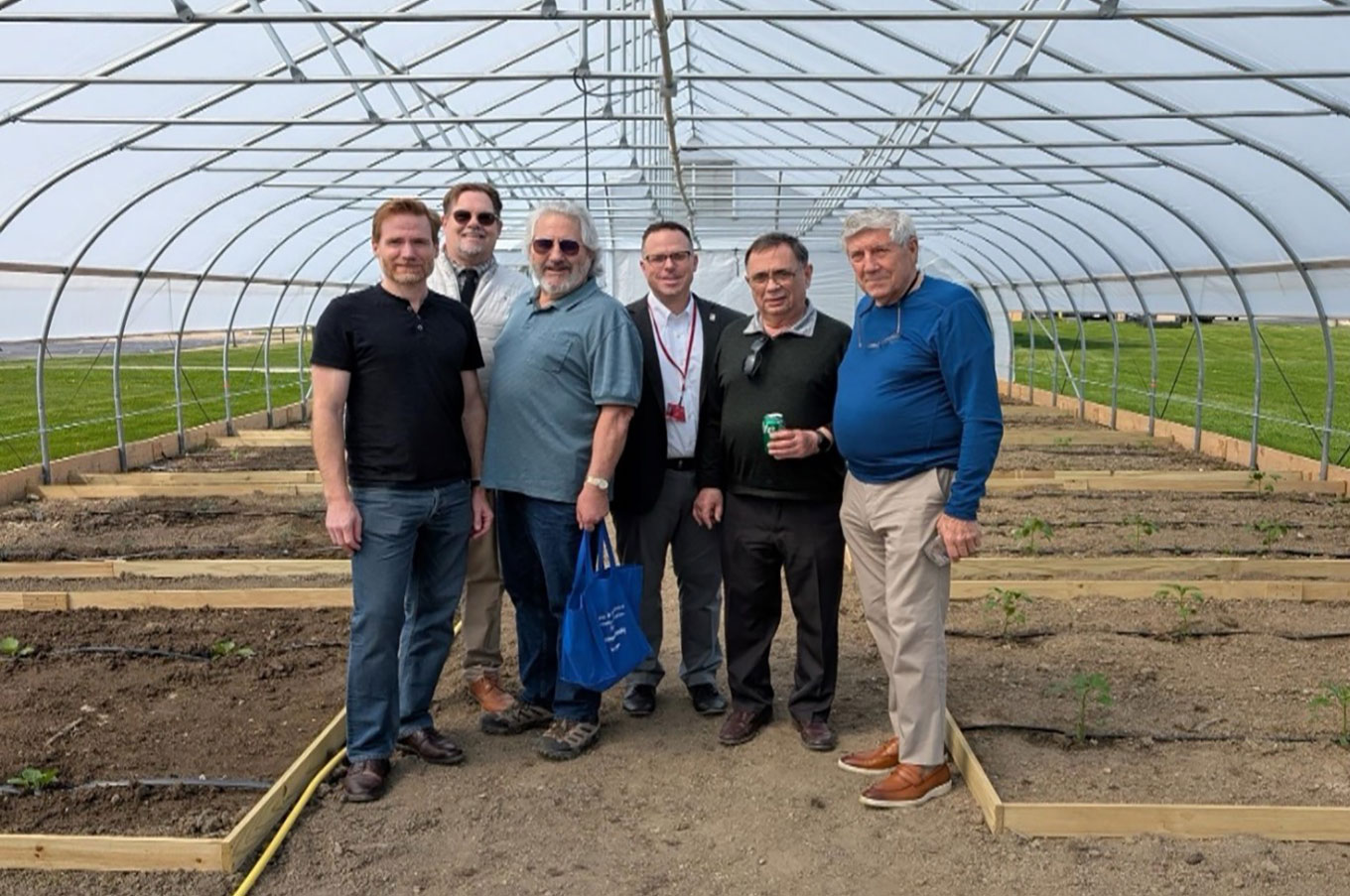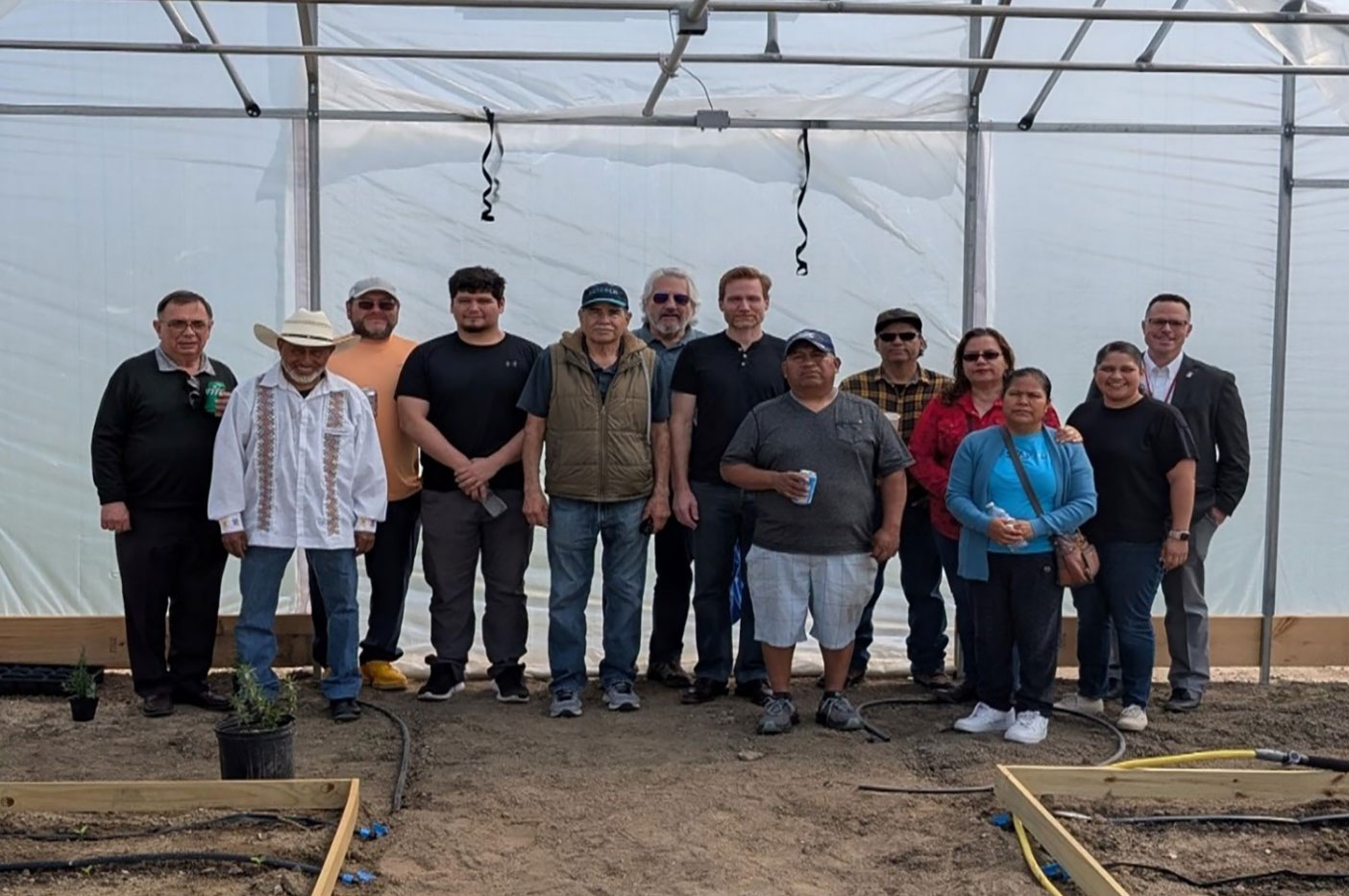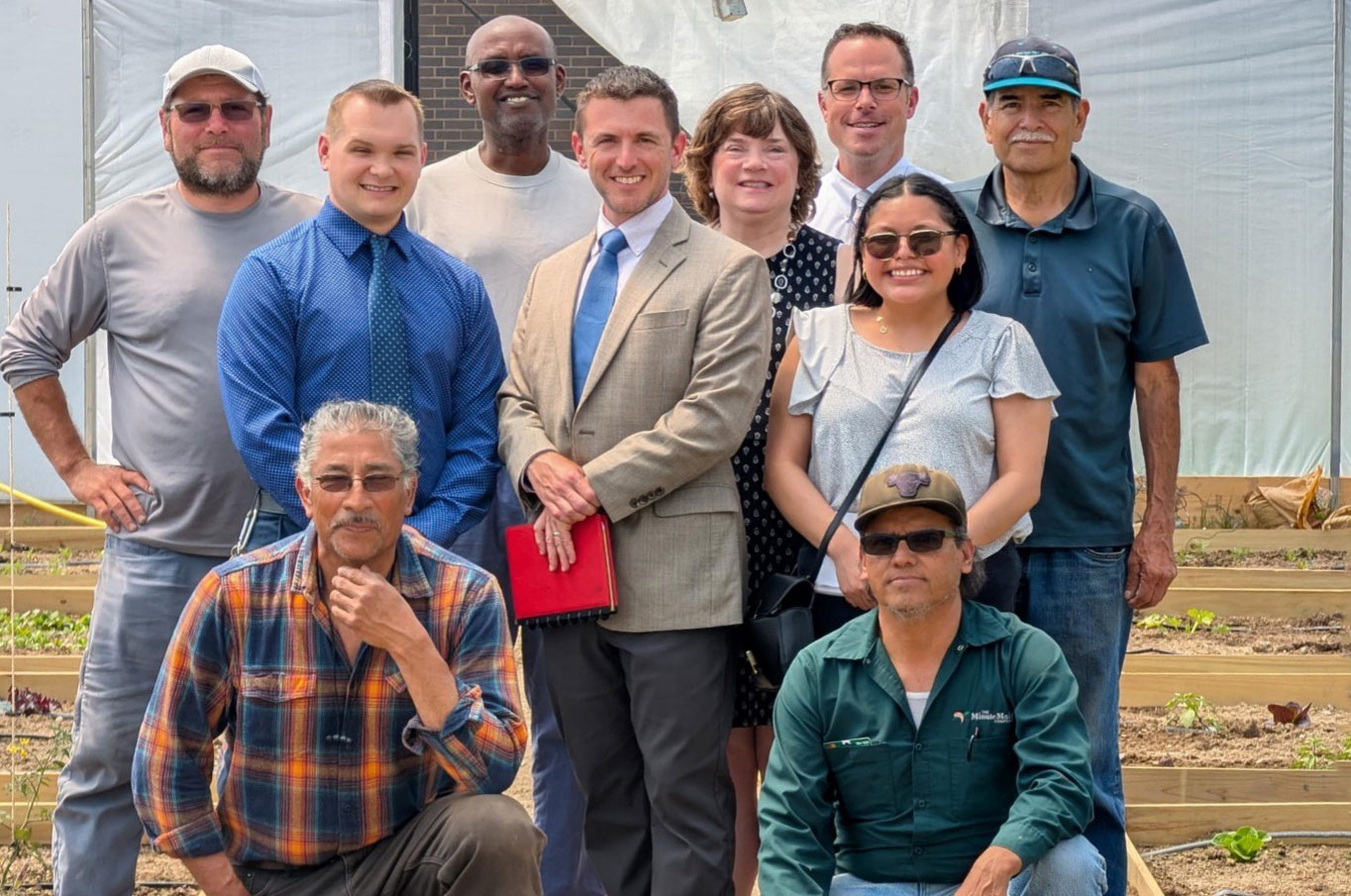Evaluating Latino Farmers Adoption of New Technologies

The Julian Samora Research Institute (JSRI) is currently working on the Latino Farmers Adoption of New Technology (LAFAT) project, funded by a grant from the U.S. Department of Agriculture’s National Institute of Food and Agriculture. Marcelo Siles, Ph.D., and Jean Kayitsinga, Ph.D., are the principal investigators (PIs) of this project, which aims to evaluate the impact of five social capital motives on the adoption of new technology by small farmers. The motives evaluated include: i) selfishness or preferences, ii) external validation, iii) internal validation, iv) sense of belonging, and v) community service on the adoption of new technology by small farmers.
This project is a collaboration between JSRI, Lake Michigan College (LMC) – South Haven campus, and the University of Tennessee at Martin (UTM). The project has three components: education, research, and outreach. For the education component, we already have offered two workshops on social capital and recordkeeping to Latino farmers in Spanish. A third workshop is scheduled in June 2025 on financial statements.
For the research component, we developed a survey instrument in English and Spanish and collected data from 50 Latino farmers in Southwest Michigan. In addition, the University of Tennessee at Martin collected online data from more than 200 small farmers including whites, African Americans, Asians, Latinos, and Native Americans. Data from Tennessee will complement data collected in Michigan to assess the relationship between social capital and the adoption of new technology by small farmers. Preliminary results support the hypothesis that social capital motives play an important role in the adoption of new technology by small farmers. In addition to in-person and online surveys, we conducted two focus groups with Latino farmers about the impact of COVID-19 on their farming operations. A summary of these focus groups has been completed. Future research will expand this project by continuing to assess the influence of social capital motives in the adoption of new technologies, but the focus will be on large farms.
The third component of this important project is outreach. Latino farmers with farming operations in Southwest Michigan are mainly blueberry producers. These farmers are currently experiencing the following production and marketing problems: i) climate change, ii) low market demand and prices that do not cover production costs; iii) domestic and international competition from production centers in Canada, Mexico, Brazil, Argentina, and Chile; and iv) soil quality that is not appropriate for agricultural production. On top of these issues, some farmers bought agricultural machinery and tools that are too expensive and are not appropriate for their agricultural production.
Due to the cited problems, Latino farmers are experiencing financial stress on their farming operations. Some farmers planned to stop producing blueberries, while others exited agriculture and sold their farms. The LAFAT project is offering alternative solutions to Latino and small farmers by building a hoop house that shows how to produce diverse fruits and vegetables in a temperature-controlled environment and with a well-designed irrigation system. We divided the 30 x 96 ft hoop house, which includes all these technical developments, into small plots. On each plot we planted several species of flowers, fruits (watermelons, strawberries, and cantaloupes), and vegetables (cucumbers, tomatoes, tomatillos, radishes, eggplants, jalapeño peppers, cilantro, parsley, among others).
The project also introduced appropriate technology to Latino and small farmers such as a well-designed irrigation system that allows the flow of water for 20 minutes every 4 hours. The hoop house also includes an automated electrical system to power an automatic ventilation system. In terms of tools to use, we bought a rototiller appropriate to work within the hoop house. The rototiller can perform work similar to that of a big tractor, but its cost is much lower.
A ribbon-cutting ceremony was held on Friday, November 15, 2024.

Leaders from MSU and Lake Michigan College were joined by civic and business leaders and Latino farmers at a ribbon-cutting ceremony on November 15, 2024.
The event was attended by local authorities, including the city of South Haven’s mayor, the president of the local chamber of commerce, representatives of neighboring industries to Lake Michigan College, representatives of the local library, local broadcast and print media, Latino farmers, and the Michigan State University team. The MSU team, headed by Kwesi Brookins, Ph.D., vice provost for outreach and engagement, included PIs Siles and Kayitsinga, project consultants Lindon Robison, Ph.D., and Rubén Martinez, Ph.D., and support staff member Alison Vincent. The Michigan Department of Economic Development was represented by Hector Arroyo. Representatives of national and domestic banks were also present. All participants were excited to see the hoop house already in place and were looking forward to seeing it in operation.

Tristan Claridge, president of the Intenational Social Capital Association, visited the LAFAT project in South Haven, Michigan, on April 25, 2025.
Once the hoop house was put in place, a group of Latino farmers, among them Sigifredo Morales, Guadalupe Alcatraz, and Heriberto Gamiño, under the supervision of Pedro Bautista, the project’s field operations manager, volunteered to prepare the soil using the rototiller, install the irrigation system, build the plots, and set up the plots to separate the planting of the different crops. These farmers became invested in the project, performing daily tasks at no cost. Two other farmers, Isabel Davis and Rufino Vargas, volunteered to germinate the seeds at their farms. As a result of this process, we expect to identify two to three products with the highest productivity and good marketing results to recommend to Latino farmers.

The LAFAT project is a collaborative effort involving MSU, Lake Michigan College, civic and business leaders, and local farmers.
The South Haven community has also become very interested in this project. The local library and its foundation are willing to disseminate information about the LAFAT project and raise funds, the school district wants to organize field trips to the hoop house to show students how the different products are growing, and finally local clubs of gardeners want to adopt one or two plots of the hoop house for their operations.

Two advisors to Senator Elissa Slotkin, accompanied by South Haven Mayor Annie Brown, visited the LAFAT project site in May 2025.
This project is the first of its kind in the world in evaluating the relationship between social capital motives and the adoption of appropriate technology by small farmers. On April 24, 2025, Tristan Claridge, president of the International Social Capital Association (ISCA), visited. He was impressed by the project’s scope and became interested in disseminating information about the project among ISCA’s constituents located in more than 60 countries around the world.
Finally, on May 22, 2025, LMC hosted two advisors to U.S. Senator Elissa Slotkin. They were informed about the LAFAT project and visited the hoop house and LMC facilities. Both were impressed with the scope of the project and the fact that it is becoming a community project with the participation of many community organizations.
